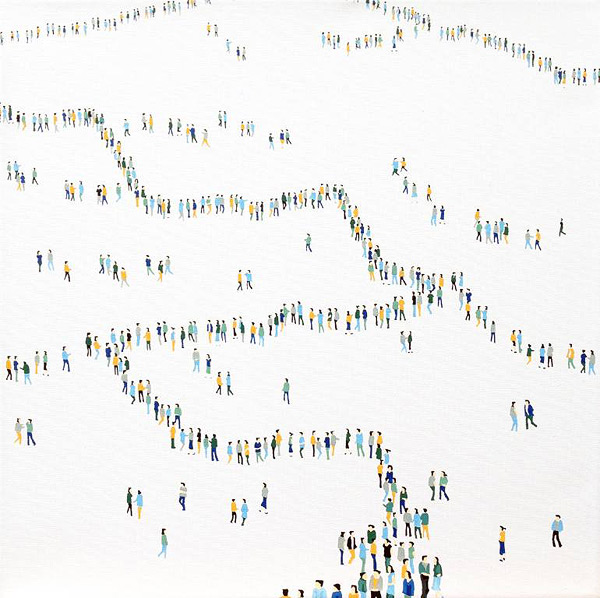
The end of politics? (Democracy, Crowdocracy, and Technology)
“If a political party receives a tenth of all votes but no representation in government, can we claim the system is democratic and people’s voices are being heard? Should an international political body, bank or committee be able to decide the destiny of a country and its government? It is clear that democracy is struggling, political representatives seemingly more inclined to pursue their own ambitions than proactively address the challenging issues facing society. But is there any alternative and can we chart a wiser way forward? Most national populations feel disenfranchised with the political process and largely powerless to make any real difference themselves. Crowdocracy offers a radical new way forward, one that allows all of us – not just some of us – to participate in how we are governed. It offers a compelling examination of the contemporary relationships between people and politics. Crowdocracy suggests a new model for how people can decide their own future, create a new political landscape, and ultimately shape and govern their communities.”
The above paragraph is the description of Crowdocracy: The End of Politics by Alan Watkins and Iman Straitens. I haven’t read the book yet but I did recently listen to an interview with Watkins on the Daily Evolver with Jeff Salzman, where they discussed the concepts in the book.
As far as I can tell from the interview, the idea of “crowdocracy” sort of works by wisdom of the crowd. In other words, the idea is that a large group’s aggregated answers to questions are generally thought to be as good as, and often better than, the answers given by any of the individuals within the group. However, in order for the crowd to be “wise,” and not become a dumb mob, the crowd must have as much diversity as possible and as many differing opinions as possible. Obviously, the author points to technology and the internet for examples of how this works; sites like Wikipedia, reddit, Quora use this sort of crowd sourced social information/opinion gathering regularly with great success.
In theory, this “Crowdocracy” idea definitely appeals to my anarchic direct democray sensibilities; representative democracy obviously has it’s shortcomings, and the idea that, with enough diverse voices and difference of opinion, wisdom would prevail and politicians would not be needed sounds pretty great. But in the interview this Watkins guy seems to think that this sort of crowd sourced democracy could only work because of our modern day advanced technology; this is where my Marxist sensibilities kick in. It seems apparent to me that the people would also have to own the technology (the hardware, software, networks, infrastructure, etc.), for this sort of thing to work, otherwise I remain skeptical about how “crowdocracy” would be that much better than what we have now.
…
Painting above by Stephanie Ho

0 Comments